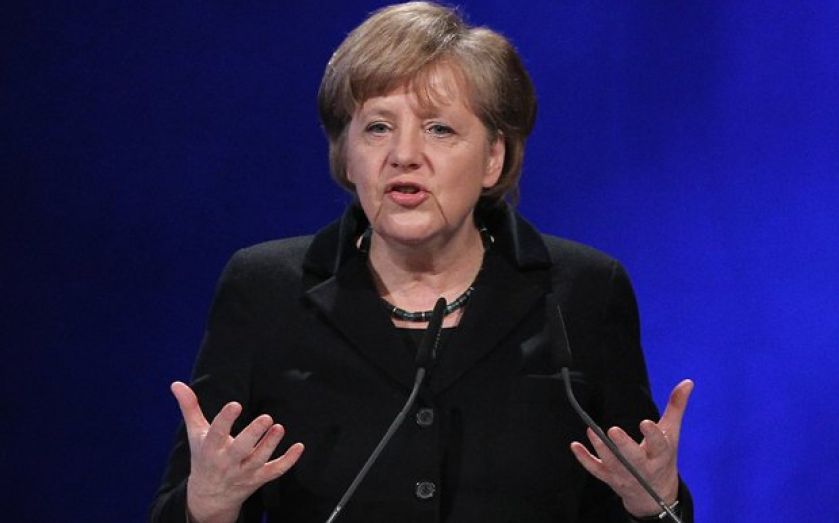Why Merkel’s EU reform shopping list isn’t enough

GERMAN Chancellor Angela Merkel arrives in London today on an official visit that many are heralding as the start of David Cameron’s pitch to renegotiate Britain’s relationship with the EU.
Unlike Francois Hollande’s trip to an Oxfordshire pub last month, when the French President said he wouldn’t support treaty change, initial reports suggest Merkel is open to giving Britain improved voting rights on financial issues, regulatory opts-outs (like for the NHS on the Working Time Directive), and a commitment to looser application of Single Market red tape. This would be a good start. But it cannot be the end of getting a better deal for businesses in Britain and across the EU.
When the likes of Nick Clegg and German foreign minister Frank-Walter Steinmeier dismiss the need to repatriate powers to national parliaments, they are cutting off their nose to spite their face. The evidence is mounting. This month, a paper by Jim O’Neill, formerly of Goldman Sachs, shone a fresh light on the EU’s crisis of competitiveness. In the last ten years, the EU lost 10 per cent of its share of world trade while the Brics’ share of global GDP tripled. The European Commission may now expect the Eurozone economy to grow by a faster-than-expected 1.2 per cent in 2014, but countries like Italy will remain largely stagnant. Part of the problem is over-regulation. A 2013 House of Commons paper estimated that the recurrent costs to UK businesses from EU regulation were upwards of £7.5bn annually.
We need to see major changes to the way the EU passes legislation, and to the content of its rules. US officials negotiating a free trade deal with Europe expressed shock at the lack of transparency in EU institutions. The Prime Minister’s business taskforce, meanwhile, has warned that EU laws mean “fewer inventions are patented, fewer sales are made, fewer goods are produced and fewer jobs are created”.
If Merkel is open to relaxing the application of Single Market rules, Cameron should argue for changes that would make a real difference. He might consider pushing to exempt the 95 per cent of UK companies that don’t export to the EU from its oppressive rules. He could also expand the set of exemptions he has already proposed for struggling small companies.
The threat to financial services posed by EU legislation requires more than just a re-balancing of the EU’s voting system. Finance has come under frequent attack (from the proposed financial transaction tax to the bonus cap), and serious protection is needed. The double-majority lock the chancellor secured during negotiations over banking union must be built on and enshrined in the treaties.
Yesterday, Labour signalled it could join the Conservatives in offering voters an EU referendum. It is therefore likely that the EU will need to change or open the door to a British exit regardless of who forms the next government. Cameron has already made a good start by advocating looser controls and deregulation. But for renegotiation to be worthwhile, UK firms want to see him push the EU to focus on trade and investment, not political or social controls. A new deal along those lines wouldn’t just benefit UK businesses, but companies in Germany and across the EU.
Matthew Elliott is chief executive of Business for Britain. www.businessforbritain.org